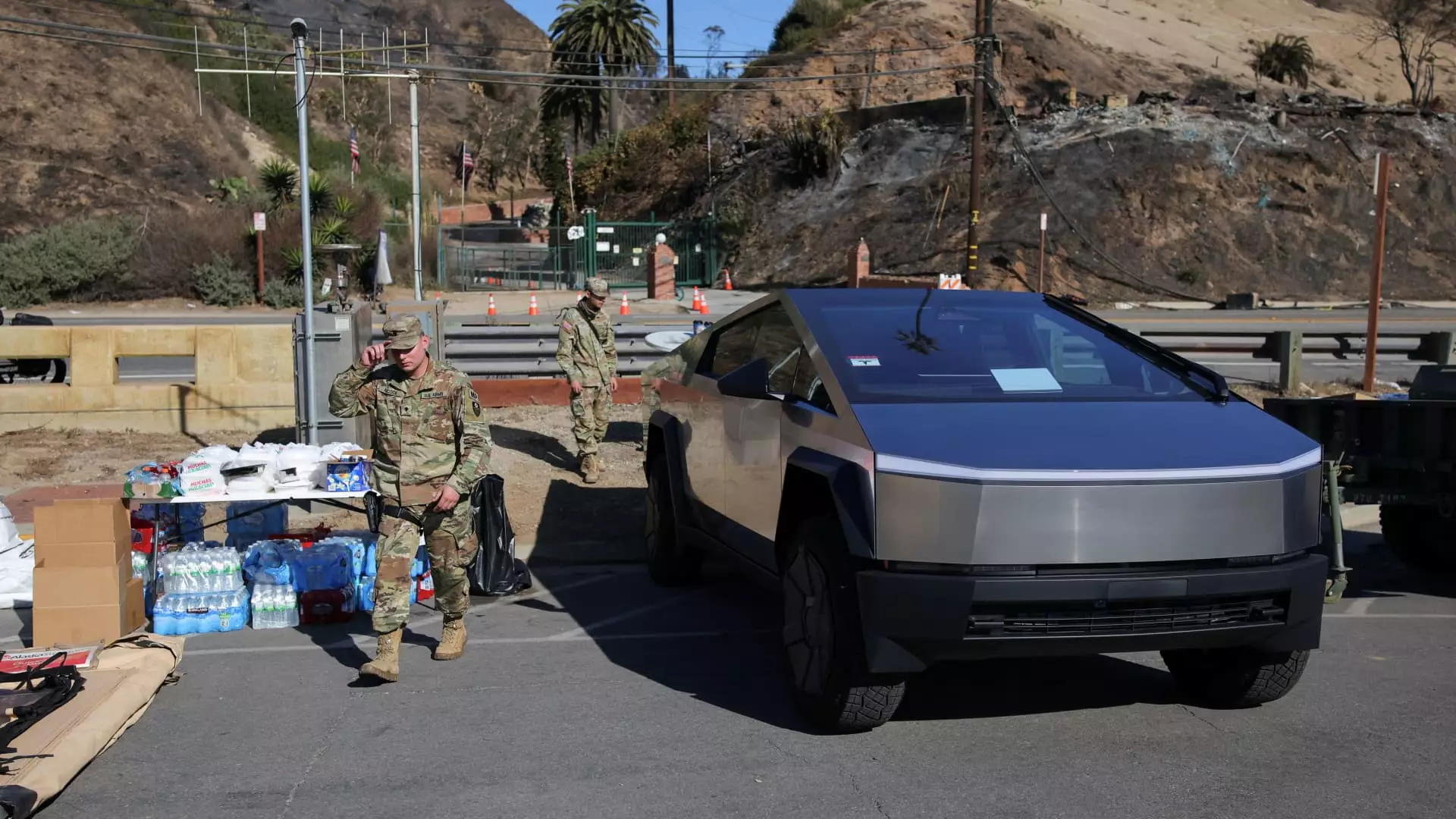This week, Tesla implemented discounts on its Cybertruck inventory, offering reductions of up to $1,600 on new vehicles. The price drops come as part of a strategic shift that reflects both market competition and the current inventory levels of the unconventional vehicles. For demo models, the discounts rise significantly, reaching as high as $2,600. Such reductions suggest that Tesla, once seen as the invincible titan of the electric vehicle (EV) market, is acknowledging the changing landscape filled with increasing competition and production challenges.
Reports indicate that production of the Cybertruck has slowed in recent weeks at Tesla’s Austin facility. This slowdown raises concerns about the company’s ability to meet market demand, especially given that deliveries for the long-anticipated pickup only began reaching customers this year. Originally announced in 2019 by CEO Elon Musk, the Cybertruck was projected to have a base price of around $40,000. However, as we move through 2024, the prices for base models hover closer to $80,000, which could deter potential buyers. The disconnect between Musk’s early projections and the current pricing structure might signal a miscalculation of consumer expectations and market conditions.
Despite the Cybertruck’s notable success in outselling the Ford Lightning F-150 and securing a position as the fifth best-selling EV in the U.S., Tesla faces significant market pressures. A wave of new EV models introduced by established and emerging automotive manufacturers has begun to chip away at Tesla’s once-dominant market share. Although national EV sales surged to an estimated 1.3 million units in 2024, a 7.3% increase from the previous year, Tesla’s sales numbers dropped by approximately 37,000 vehicles, undermining its growth ambitions. The competition now ranges from luxury brands to budget-friendly alternatives, forcing Tesla to reconsider its pricing and marketing strategies.
Tesla’s aggressive growth has also been hampered by a spate of recalls and quality control problems. Notably, the company executed its sixth recall in a single year to address defective drive inverters—issues that undoubtedly shake consumer confidence. In this context, the Cybertruck, rather than being a beacon of innovation, risks being viewed as a cautionary tale in the realm of production reliability.
Customer Relations: Communication and Deliveries
The recent apologies made by Musk to California customers awaiting the Cybertruck deliveries further illustrate the complexities of Tesla’s current operational challenges. Musk explained that some trucks were temporarily repurposed to aid in crisis response by providing Wi-Fi services and power in areas affected by devastating wildfires. While the intention to contribute to community efforts is commendable, the communication around delays might reflect deeper operational issues that could impact Tesla’s reputation in the long run.
Tesla’s Cybertruck saga is emblematic of a broader industry shift. The brand is navigating uncharted waters—balancing between discounts, delivering quality, managing recalls, and addressing fierce competition. The outcome of these challenges will be critical in shaping both the future of Tesla and the electric vehicle landscape at large.


Leave a Reply